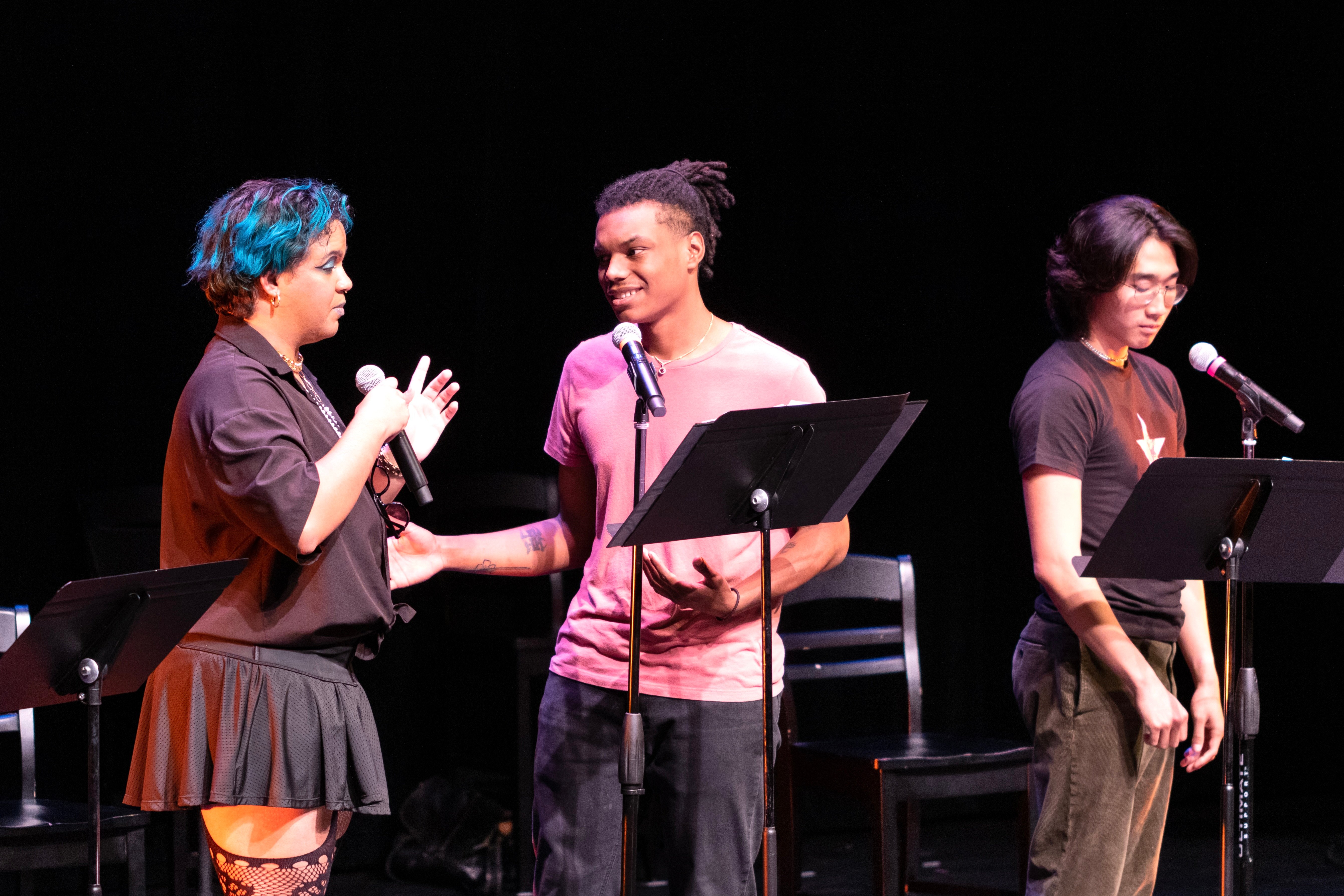The lights start to dim in the cozy proscenium theater. A voice singing a strangely familiar chorus captivates the audience from the right end of the stage.
Yet you’re not just an audience. You are in it. You are fully immersed. You are invited to engage in this raw process of an exquisite performance in its making.
“Three Days,” a dance and musical theater performance by Fall Developmental Stage, ran Oct. 26–27 at the Pigott Theater. Following an intense eight-day lab of collaboration between the students and the artistic team, “Three Days” tells the story of two gay men navigating their pasts, families and identities. Against the backdrop of New York City, the story envisions new possibilities of queer futurity.
The idea for the show came up a year and a half ago in conversations between Khiyon Hursey, the book writer and songwriter of the show, and Ph.D. candidate Adin Walker, the director, that transformed the ways they think about love, life and their future.
“It started as a conversation between the two of us, of how do we turn our ideas into a theatrical piece and how do we make it as queer as possible and do it from a non-white perspective,” Hursey said. “And then from there we brought in Julian Hornik and Mark Sonnenblick, our songwriters.”
From the onset, the project intentionally recruited as many queer people and people of color in the creative team as possible. The team is very close-knit, and its values transcended to every step of the project.
This diversity was especially salient within the show’s songwriting.
“I, Mark, and Khiyon spent a lot of time writing on our own. But something really exciting about this work is saying, ‘Let’s change the way we do things. Let’s really smash our brains together.’ That process in and of itself is so new, and also freeing in a sense that it is a communal effort,” Hornik said.
Songwriting is form of storytelling. Hornik detailed that it took the songwriters a few songs to find the internal rhythm of collaboration. He drew inspiration from some of Walker’s research on queer theories to write the opening song of the show, which reimagines the act of showering as “redefining what’s considered clean or pure.”
The songs then grew as Hursey and Sonnenblick added their own thoughts and artistic twists to bring out the final product. Walker, calling himself the “witness” to this process, noted the gentleness in their friendship and music.
The artistic team embraces the radical themes of “Three Days” into their own work ethics; queerness means collaboration, community and company. The production has so much more than just professional value, as each member of the team realizes its significance to their identities and personal life.
“You grow up and realize how much queer intimacy is tied with stigma around inability to start a family and a history of illness. There is a lack of narrative in our aging and our love. And to me it’s important to make art that helps us all in the vision of our own future,” Walker said.
Walker also expressed his excitement at the audience’s reaction to the show. They understood and laughed at the hidden queer references, signifying that the performance reached its intended audience. Just like that, the audience became a part of the show.
The team also emphasized how much they deeply valued the students who committed to the show in such a short span of time while showing so much passion and support. Impressed by the level of the students’ investment and dedication, Hornik felt even more inspired to bring their work beyond the stage of Pigott Theater.
When asked about the future of “Three Days,” one word resonates with everyone — hope.
“I’m hopeful to see a fully realized production in a major queer city. I’m thinking New York City, exactly where the show is setting,” Hursey said.
